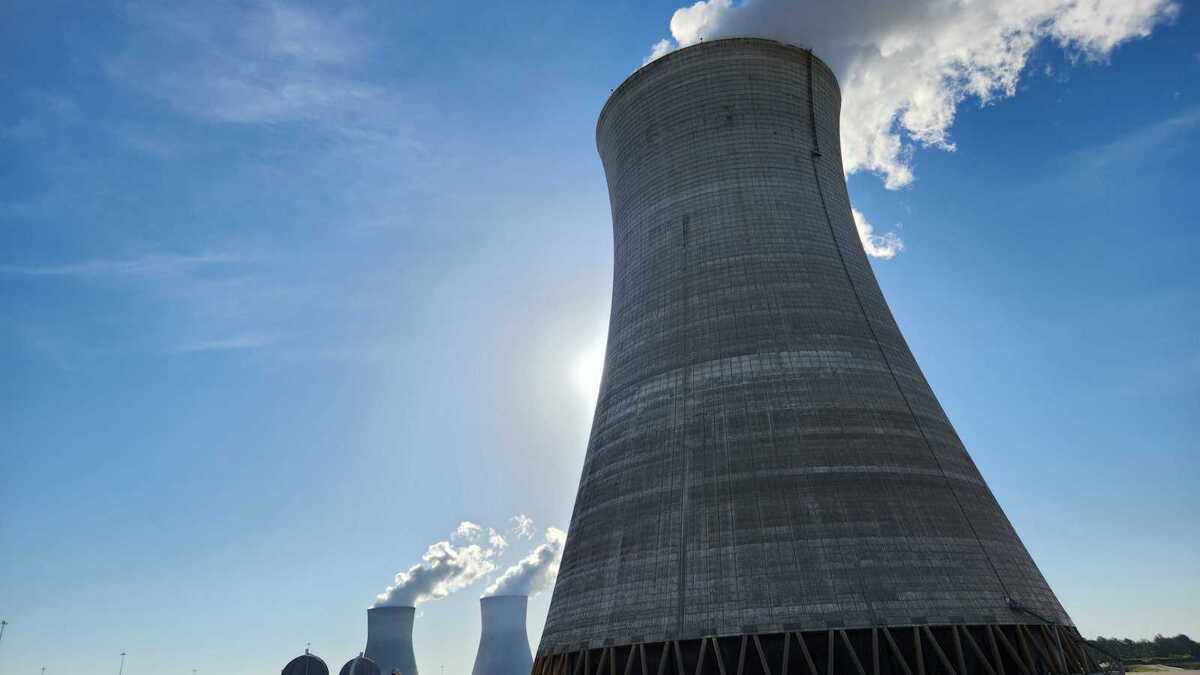You know what cost they never factor in? The cost of climate change. If they actually factored in the cost of emissions then nuclear power would be one of the cheapest forms of energy alongside solar.
Another thing a lot of people fail to mention about nuclear power, is the lifespan of a reactor. We have reactors from the 70s still running at full power, it’s pretty insane. I’m wondering what the TCO per kWh is for a nuclear reactor compared to other sources of energy.
A solar farm in Switzerland from 1982 is also still providing power at 80% of original spec. Even today solar companies give 25 year warranty on new panels.
So this is not really an advantage of nuclear. In fact after 50 years a lot of them become a lot less reliable. We recently saw that in France.
I don’t remember, but nuclear is the highest operating cost of electricity, until the reactor is paid off by rates, in which it becomes very cheap. Natural gas is the cheapest starting and maintaining and is reaching better efficiencies. However, it’s killing the environment.
Methane (natural gas) is cheap because they don’t factor in the cost of climate change caused by methane emissions. Methane would be one of the most expensive if they factored in the leaks and its strong ability to trap heat in the atmosphere.
12.95 ¢/kWh to 13.60 ¢/kWh.I think that’s a fair price for cleaner air
I also think there are proven better reactor designs that are far cheaper.
https://www.eia.gov/electricity/monthly/epm_table_grapher.php?t=table_5_06_a
Sadly not. There are unproven ones which might be, but the US nuclear industry has a substantial history of coming in really really expensive.
The reason electricity in most places is cheaper are:
- Nuclear was built a long time ago, so the reactors are paid for already
- Electricity is generated using methods other than nuclear
The US Navy has had functional Small modular reactor designs mostly PWR designs since the 1960s in the 5mw to 500mw range with no major failures yet.
The problem is that none of these designs have ever been used to power the grid. Every nuclear project in the recent past has blown by cost and time estimates. Wind and solar are not only cheaper than nukes, they can also be installed much quicker and predictably. Nukes have a place, but we need clean energy now.
Wind and solar are great, but they cannot provide consistent 24 hours base load production. Even with massive battery farms, they cannot replace bas load consistently.
That’s where nuclear needs to be, replacing the base load production currently being handled via coal and natural gas.
The US at least already has enough nuclear to handle base loads when solar and wind are unavailable. Nukes in some contexts are needed, but I believe we have 30% or so nukes in the US. Diverting resources to new nukes is a waste when we could be making carbon fuels unprofitable soon by investing in solar and wind.
But are they in the right places? There’s always loss in power transmission, so you can’t use reactors that are in, say, Illinois, to make up for grid deficits in Alabama (or, not directly). And Texas, being a special snowflake, isn’t tied into the national grid, so they always need their own systems.
Yes. Operated on a military budget. There’s a reason they’re not used for civilian use.
Citation please
Er… how would the military nuclear reactors not be operated on a military budget?
I’m asking for a citation that it is more expensive to operate than a standard pressurized water reactor. Since I did not make the claim that they are more expensive to operate, I don’t have to back that up. That’s how it works. I don’t know everything, but I did look quite deeply into this career path at one point.
You’re not going to find one because the military has an incredibly opaque budget
If I had the time and the resources I’m certain I could. It took me 15 minutes to figure out of the cost per reactor by reading declassified foia documentation.
You’re the one that made the claim they were made by the Navy.
That’s thanks to the training (started with Rickover) and discipline and no shareholders. Commercial nukes don’t measure up, e.g. when it comes to leakages and knowing what to do in case.
Now you’re just being disingenuous. I am certain that qualified individuals from the private sector and qualified individuals from the military both receive adequate training to operate their facilities
What’s funny about this is that most of the qualified private sector individuals are former Navy personnel. The civilian nuclear industry loves to hire people with nuclear training from the Navy because they’re already trained and experienced.
The Navy does operate a lot of nuclear reactors, and quite safely overall, but they also spend DoD money on building and maintaining them and training personnel for them.
Way to start out with an ad hominem. Cheap too. Since you’re ‘certain’ (and I know very well that’s hard to come by for this sacred cow), your #1 reference?
If I called you stupid that would have been an ad hominem attack, I’m saying you’re misrepresenting facts which would require intelligence. Therefore, disingenuous.
Poor governor of Georgia, one more in a long, long line.
I learned much of what I know about how facts are misrepresented by reading advertisements by the industry. Like the full-page regional newspaper ad along the lines of "One myth about nuclear power is … instead the fact is this … " back in the 1970s. Or my all-time favorite fact, one of the earliest: Safe, clean, ‘too cheap to meter’, said AEC chairman Lewis Strauss, in 1954.
Maybe it was catching? But the facts, like those countless millions of escaped curies, were invisible. Convenient.
This 14-year-old Fermi story might help: https://www.latimes.com/business/hiltzik/la-fi-hiltzik-detroit-nuclear-20161003-snap-story.html
Way to start out with an ad hominem. Cheap too. Since you’re ‘certain’ (and I know that’s hard to come by for this sacred cow), your #1 reference?
If Republicans want to elect Republicans that force them to pay extra for their preferred (marginal) carbon free power source, fine I guess? The rate increases aren’t great for the other 48% of the state though.
If you’re only looking from a financial perspective, sure. But given the slow construction times, these decisions are an issue for absolutely everyone, given that decarbonization is a worldwide project.
I just wanted to point out that Georgia has consistently had a budget surplus for quite a while now, mostly because Republicans keep cutting critical gov’t services. Seem to me like Republicans could pay for a new plant using all of the excess taxes that they’ve been saving for a rainy day.








